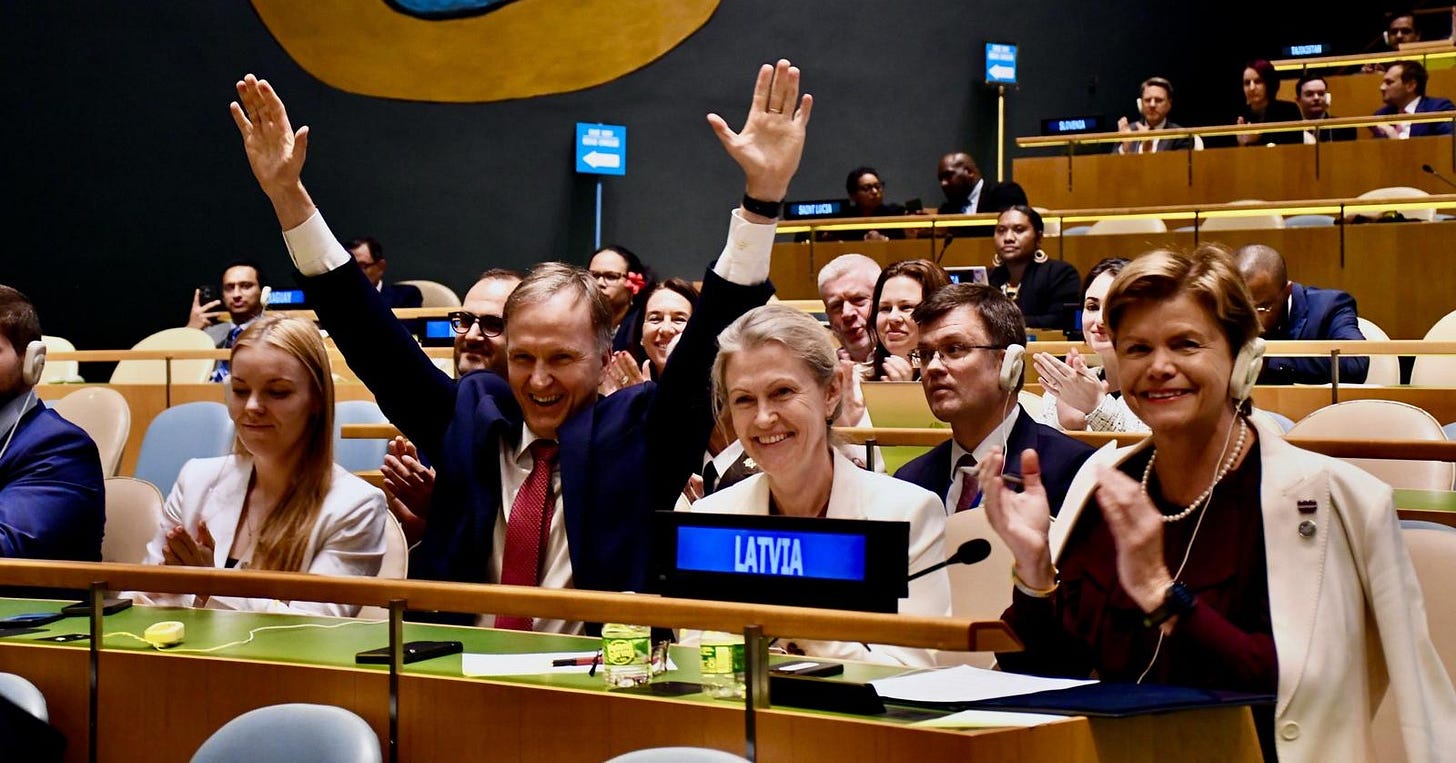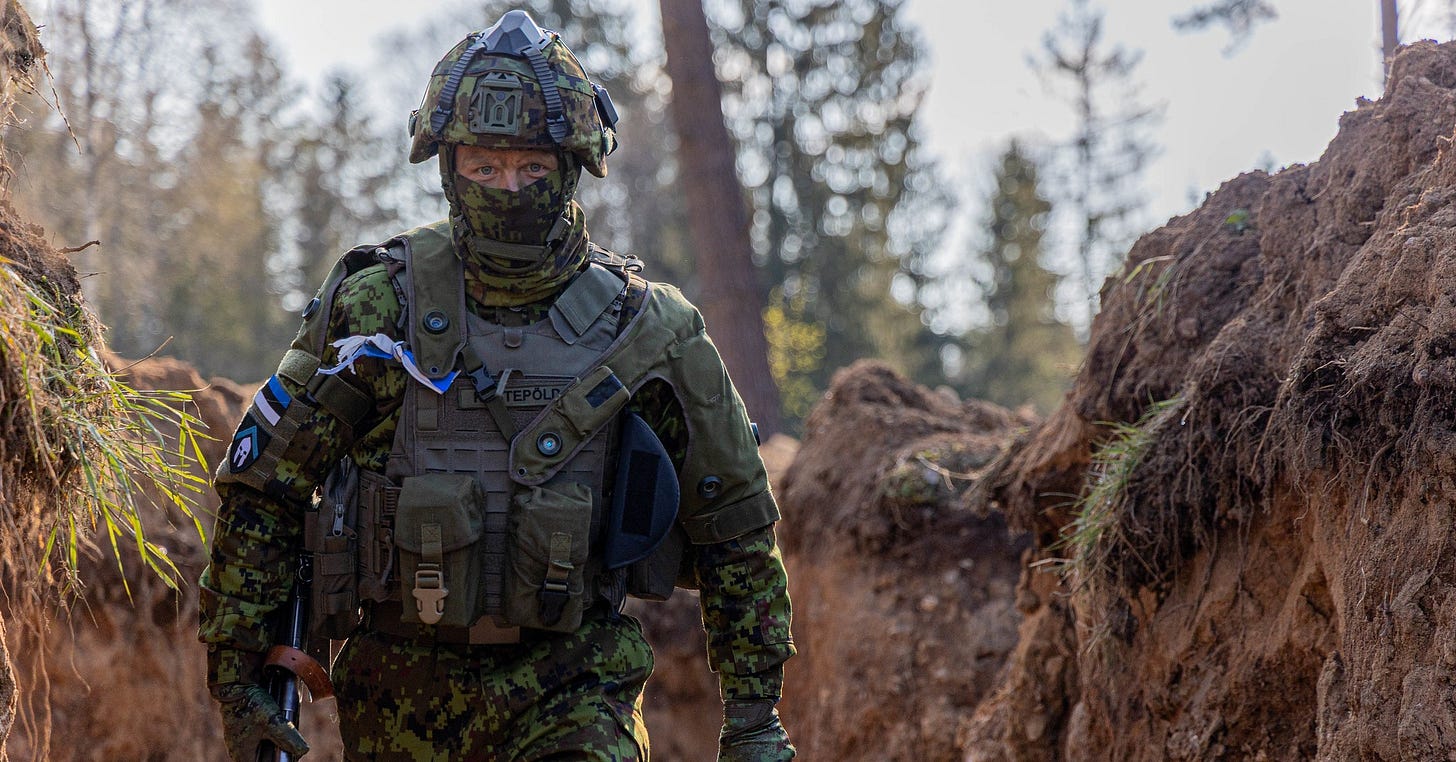
On June 3, after a years-long campaign, Latvia was elected to the United Nations Security Council for the first time for the 2026-2027 period. And municipal elections took place across the country. In the days before polls closed, Aleksejs Rosļikovs (For Stability! party) was expelled from a Saeima session for linguistic provocation. Now, a look back at May in the Baltic states.
Foreign Affairs & Security
Irregular migration on Latvia and Lithuania’s borders with Belarus has risen in recent months. Lithuania registered multiple pushbacks, and Estonia has sent policing units to help at the request of Latvian authorities. Lithuania filed a case against Belarus at the International Court of Justice, accusing the government under Alyaksandr Lukashenka of orchestrating the irregular migration crisis and seeking more than $200 million in compensation.
From May 5 to 23, 16,000 troops participated in Hedgehog 25 — a multinational defense drill and one of the largest NATO exercises hosted by Estonia.

Lithuania unveiled a €1 billion 10-year border defense plan, including more than €800 million for anti-tank drones. And, Vilnius marked the deployment of Germany’s 5,000-strong Panzerbrigade 45 with a military parade attended by Chancellor Friedrich Merz.
The Baltic countries closed their airspace to foreign leaders traveling to Russia for May 9 “Victory Day” celebrations.
Lithuania’s Saeima overwhelmingly voted to exit the Ottawa Convention banning landmines. All three Baltic countries and Poland announced intentions to withdraw in March, followed by Finland.
In Latvian, Re:Baltica looks at how Moscow is avoiding sanctions to secretly finance pro-Kremlin activists. And for CEPA, Edward Lucas writes that a newly published book from Russia’s top foreign policy institute about Lithuania presents a shoddy history, but has serious implications.
Politics
Estonia’s Reform Party and Eesti 200 signed a new coalition agreement, including provisions around pensions, taxes, transportation, and defense reforms. (Adding drone education to the national defense curriculum in high schools is also among the priorities cited.) However, critics say the agreement “lacks vision” and avoids discussion of how to pay for promised policies.
Evika Siliņa withstood efforts by opposition lawmakers to unseat her as Latvia’s prime minister.
Lithuania’s PM Gintautas Paluckas is under scrutiny over allegations that his company received a subsidized government loan while he was in office.
Lithuanian MEP Petras Gražulis was stripped of legal immunity by the European Parliament over homophobic rhetoric. The European Commission launched a probe into Estonian economist Henrik Hololei, a senior transportation official, over corruption concerns linked to an aviation deal with Qatar.
Economy & Environment
The Latvian ministries of Economics and Agriculture signed a memorandum on food trade with industry partners in an effort to reduce basic food prices, which have contributed to inflation. The Ministry of Economics anticipated consumers would see prices fall within weeks, but the memorandum has no actual legal force.
The European Commission projects GDP growth among the Baltic countries will be strongest (2.8% year-over-year) in Lithuania in 2025, but weakest in Latvia (0.5%). Inflation is predicted to be highest in Estonia (3.8%), but lowest in Lithuania (2.6%). All three countries are predicted to see GDP growth in 2026.
The cold spring weather has impacted berry and fruit crops, prompting the Lithuanian government to declare a nationwide emergency in hopes of securing EU funding. Latvia’s Minister of Agriculture ordered an assessment of damage caused by the weather. Heavy rains have also led to sinkholes, collapsing at least one house in northern Lithuania.
Estonian officials are investigating why a large number of fish were found dead in rivers in Pärnu county.
And, hüvasti to Estonian-founded Skype, which ended operations 22 years after emerging as a pioneer in Voice over Internet Protocol technology.
Aitäh, paldies and ačiū,
Indra Ekmanis
Baltic Bulletin Editor
In Case You Missed It
What E-Estonia Can Teach the US - Baltic Ways



